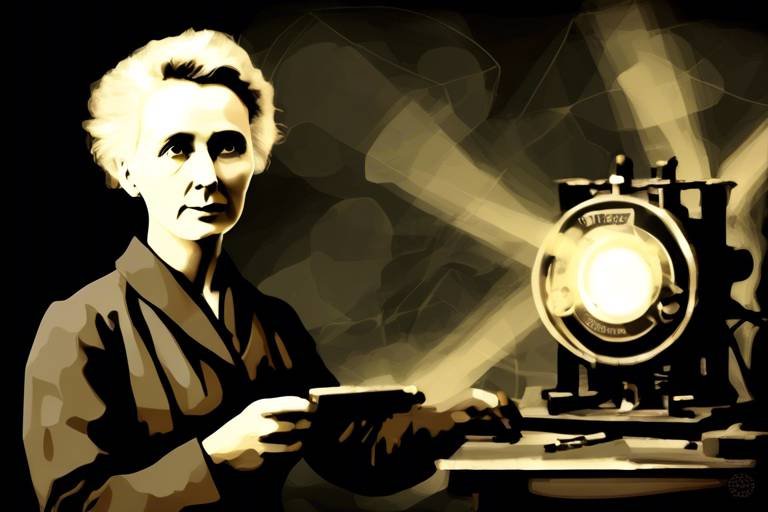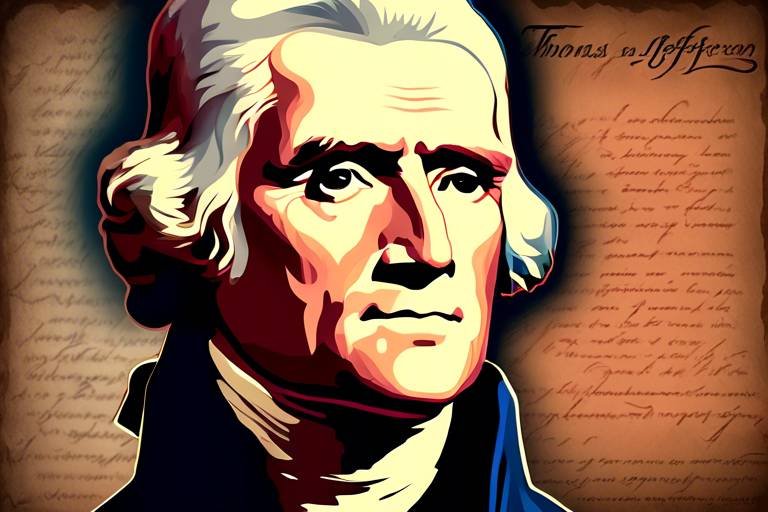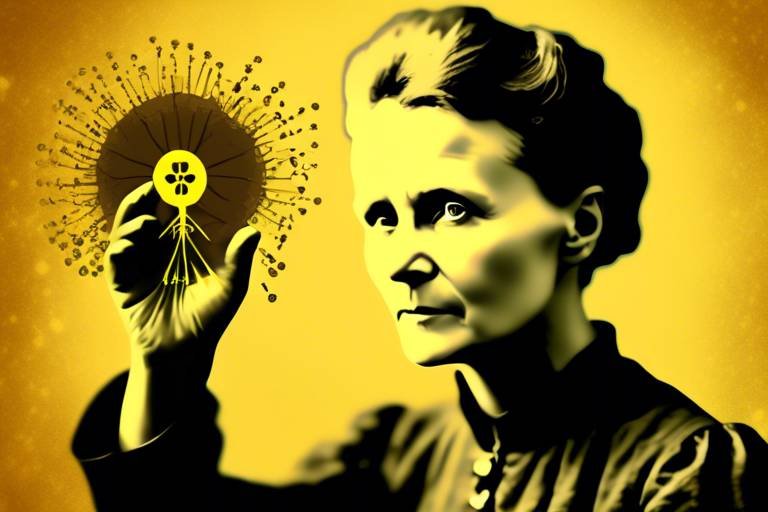Curie: The Pioneer of Radioactivity
Marie Curie, a name synonymous with groundbreaking scientific discoveries and unwavering determination, stands out as a pioneer in the realm of radioactivity. Her relentless pursuit of knowledge and passion for unraveling the mysteries of the natural world propelled her to the forefront of scientific innovation.
From her humble beginnings to her monumental achievements, Curie's journey is a testament to the power of perseverance and intellect. Despite facing numerous challenges as a female scientist in a male-dominated field, she defied societal norms and carved a path for herself through sheer brilliance and hard work.
Through her tireless research efforts, Curie unearthed the elements polonium and radium, forever altering our understanding of atomic structure and radioactivity. Her meticulous approach to experimentation and unwavering dedication to her craft set her apart as a trailblazer in the scientific community.
Not only did Curie make history as the first woman to win a Nobel Prize, but she also achieved the remarkable feat of being the sole individual to receive Nobel Prizes in two distinct scientific disciplines – physics and chemistry. Her accolades serve as a testament to her unparalleled contributions to the fields of science and academia.
However, Curie's impact extended far beyond the realm of academia. Her groundbreaking research in the application of radioactivity to medicine revolutionized the field of healthcare, paving the way for modern radiation therapy and imaging techniques. Her work continues to save countless lives and shape the future of medical science.
Despite facing skepticism and personal tragedies throughout her career, Curie remained steadfast in her pursuit of knowledge and innovation. Her resilience in the face of adversity and unwavering commitment to her research solidified her legacy as a true pioneer of radioactivity.
Marie Curie's legacy transcends generations, inspiring countless individuals to pursue careers in science and advocating for gender equality in STEM fields. Her enduring influence serves as a beacon of hope for aspiring scientists and a reminder of the transformative power of curiosity and dedication.
As we reflect on Curie's remarkable life and contributions, we are reminded of the importance of pushing boundaries, challenging norms, and embracing the unknown. Her story serves as a reminder that with passion, perseverance, and a touch of curiosity, anything is possible.
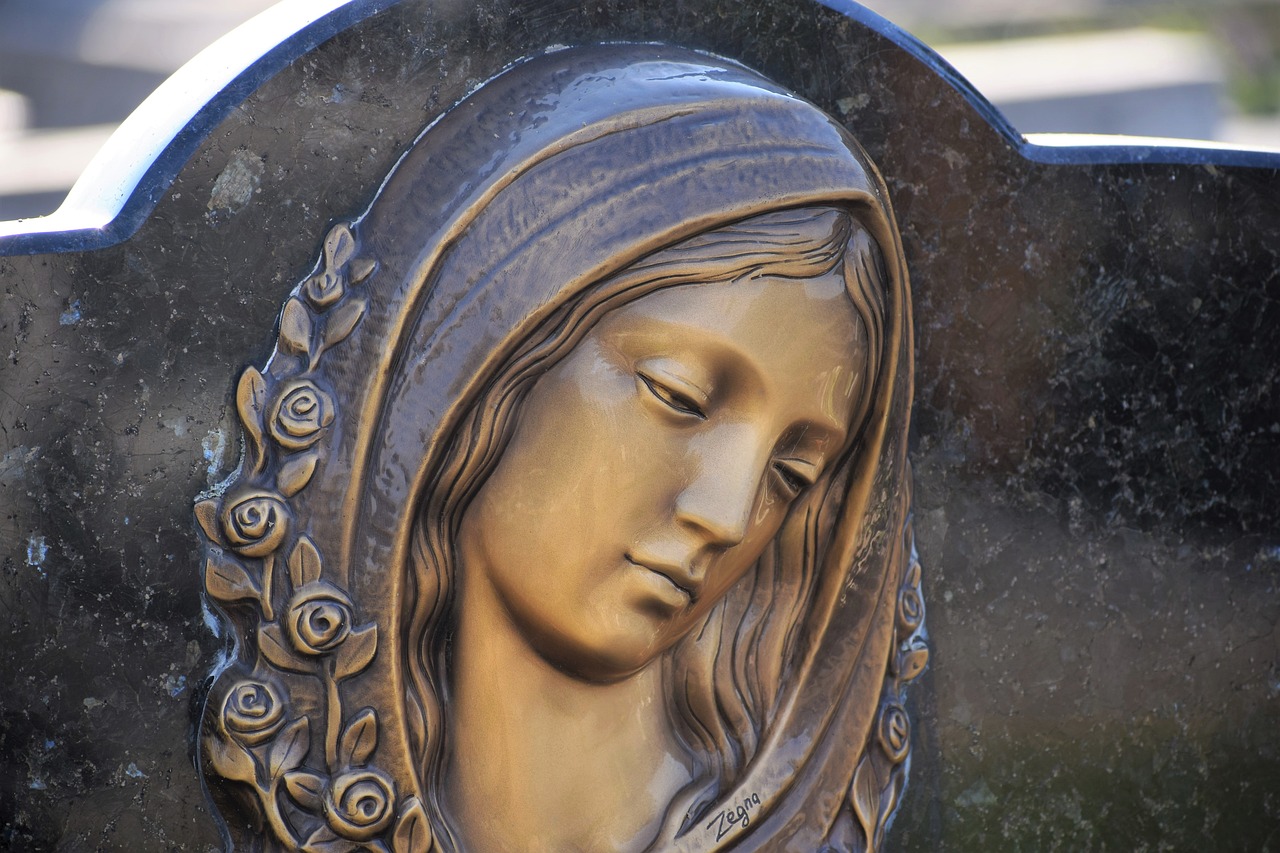
Early Life and Education
Exploring the life and contributions of Marie Curie, a trailblazing scientist known for her groundbreaking research on radioactivity. Discover her impact on the fields of physics, chemistry, and medicine through her remarkable discoveries and enduring legacy.
Marie Curie, born Maria Skłodowska in Warsaw, Poland in 1867, had a humble upbringing in a family of educators. Despite facing financial hardships, she pursued her education with determination and passion. Curie's academic journey began at the University of Warsaw, where she excelled in her studies despite the limitations imposed on women seeking higher education at the time. Her thirst for knowledge and love for science led her to Paris, where she continued her studies at the Sorbonne University.
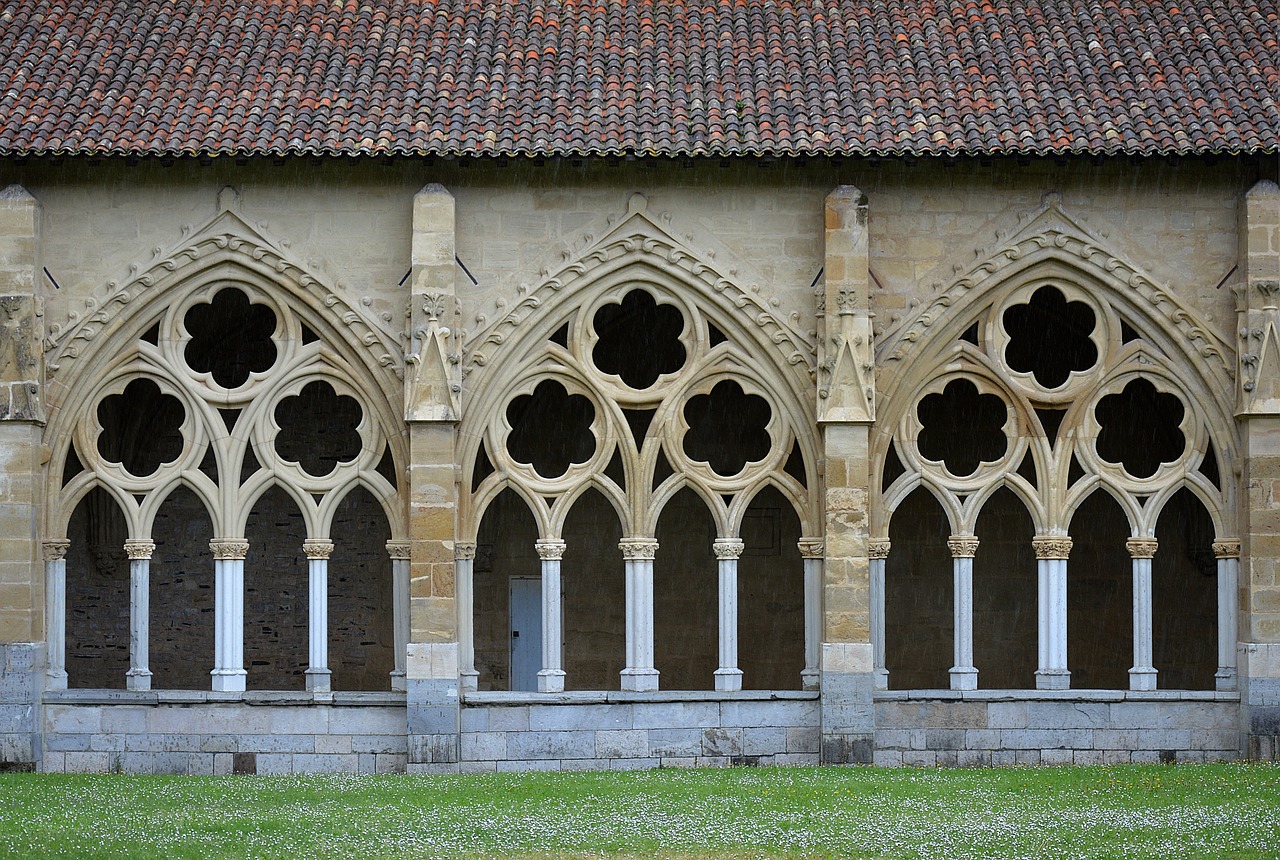
Discovery of Polonium and Radium
Marie Curie, a trailblazing scientist known for her groundbreaking research on radioactivity, has left an indelible mark on the fields of physics, chemistry, and medicine. Her remarkable discoveries and enduring legacy continue to inspire generations of scientists.
Marie Curie's journey into the realm of radioactivity led to the discovery of the elements polonium and radium, revolutionizing our understanding of atomic structure. Through meticulous experimentation and unwavering dedication, she unraveled the mysteries of these radioactive elements, paving the way for future advancements in science.

Nobel Prizes in Physics and Chemistry
Exploring the life and contributions of Marie Curie, a trailblazing scientist known for her groundbreaking research on radioactivity. Discover her impact on the fields of physics, chemistry, and medicine through her remarkable discoveries and enduring legacy.
Marie Curie's remarkable achievement as the first woman to win a Nobel Prize and the only person to receive Nobel Prizes in two different scientific fields is truly extraordinary. Her groundbreaking work in the fields of physics and chemistry revolutionized the scientific community and solidified her legacy as one of the most influential scientists of all time.
Curie's first Nobel Prize was awarded in 1903 in Physics, which she shared with her husband Pierre Curie and physicist Henri Becquerel for their joint research on the phenomenon of radioactivity. This prestigious recognition not only highlighted the significance of their discoveries but also shattered gender barriers in the male-dominated scientific world.
Subsequently, in 1911, Marie Curie made history once again by winning the Nobel Prize in Chemistry for her discovery of the elements polonium and radium. This remarkable feat showcased her exceptional intellect, dedication, and relentless pursuit of scientific excellence.
The dual Nobel Prizes in Physics and Chemistry not only honored Curie's exceptional contributions to both disciplines but also emphasized the interdisciplinary nature of her work. By bridging the gap between physics and chemistry, Curie demonstrated the interconnectedness of scientific fields and the importance of collaboration in advancing knowledge and innovation.
Curie's Nobel Prizes serve as a testament to her unparalleled achievements and unwavering commitment to scientific progress. Her legacy continues to inspire generations of scientists and researchers to push boundaries, challenge conventions, and strive for excellence in their pursuit of knowledge.
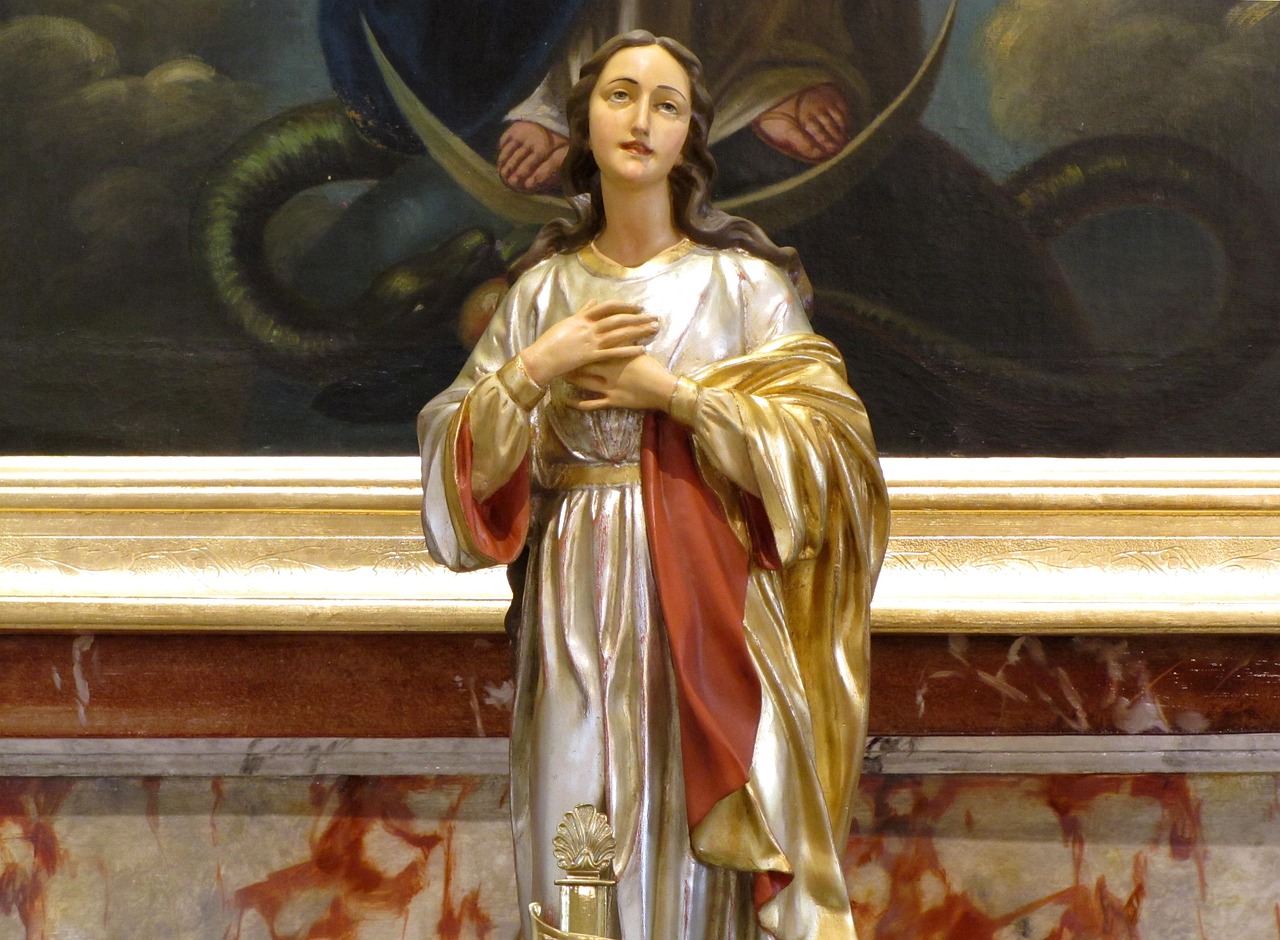
Medical Applications of Radioactivity
Marie Curie's groundbreaking work in the field of radioactivity extended beyond scientific discoveries and theoretical advancements. One of the most significant aspects of her research was the exploration of medical applications of radioactivity, particularly in the realm of cancer treatment. By harnessing the power of radioactive elements such as radium, Curie paved the way for revolutionary advancements in medicine that continue to benefit patients to this day.
Through her meticulous experiments and innovative approach to scientific inquiry, Curie demonstrated the potential of radioactivity in targeting and destroying cancerous cells. Her pioneering efforts laid the foundation for modern radiation therapy, a crucial component of cancer treatment that has saved countless lives. The ability to precisely deliver radiation to tumors while minimizing damage to healthy tissue is a testament to Curie's ingenuity and dedication to improving healthcare outcomes.
Furthermore, Curie's research in medical applications of radioactivity also contributed to the development of diagnostic imaging techniques. By utilizing radioactive isotopes for imaging purposes, medical professionals gained valuable insights into the internal structures of the human body, enabling more accurate diagnoses and treatment planning. The legacy of Curie's work in this area continues to shape the field of medical imaging, providing clinicians with powerful tools to improve patient care.
It is essential to recognize the profound impact of Curie's contributions to the field of medicine, as her pioneering work in applying radioactivity has revolutionized cancer treatment and diagnostic practices. By bridging the gap between scientific discovery and practical applications in healthcare, Curie exemplified the transformative potential of interdisciplinary research and the enduring relevance of her legacy in advancing medical science.
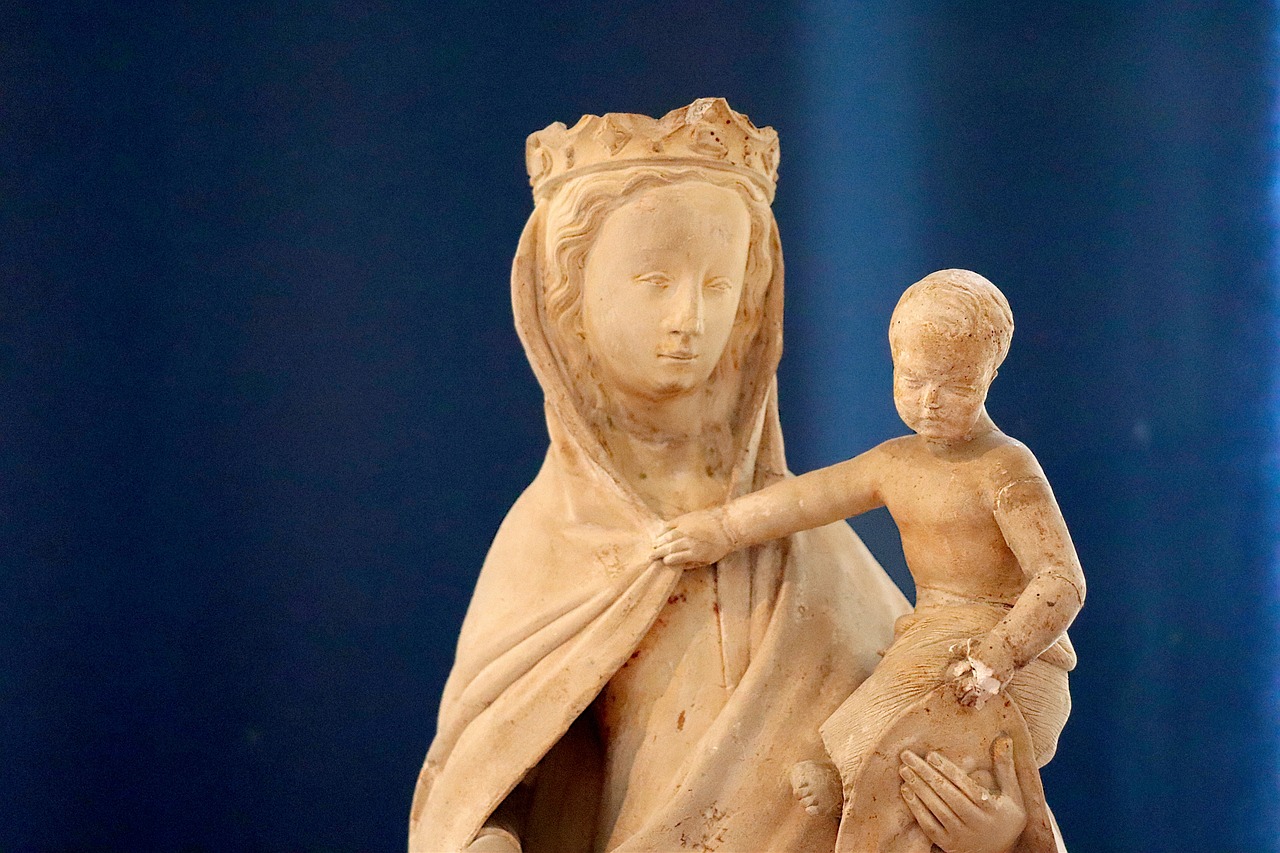
Legacy and Influence
Marie Curie's legacy and influence in the scientific community and beyond are profound and enduring. Her pioneering work in the field of radioactivity has left an indelible mark on various disciplines, shaping the course of scientific progress and inspiring generations of researchers.
One of the key aspects of Curie's legacy is her role as a trailblazer for women in science. In an era when female scientists faced significant barriers to entry and recognition, Curie's groundbreaking achievements shattered stereotypes and paved the way for future generations of women to pursue careers in STEM fields.
Furthermore, Curie's relentless pursuit of knowledge and her unwavering dedication to scientific inquiry serve as a powerful example of the importance of curiosity and perseverance in the face of challenges. Her emphasis on rigorous experimentation and meticulous attention to detail set a high standard for scientific research that continues to influence researchers today.
Curie's impact extends beyond the realm of academia, as her work in applying radioactivity to medicine has revolutionized healthcare practices. The development of radiation therapy and imaging techniques based on Curie's research has saved countless lives and transformed the way we diagnose and treat various medical conditions.
Moreover, Curie's legacy serves as a reminder of the transformative power of scientific discovery and the profound influence that individuals can have on society. By pushing the boundaries of knowledge and challenging conventional wisdom, Curie exemplified the spirit of innovation and exploration that drives progress and shapes the world we live in.

Challenges and Controversies
Marie Curie faced numerous challenges and controversies throughout her scientific career, often stemming from the societal norms and prejudices of her time. As a woman in a male-dominated field, she encountered significant skepticism and discrimination from her male colleagues, who questioned her abilities and contributions to the field of science. Despite these obstacles, Curie remained steadfast in her pursuit of knowledge and continued to push the boundaries of scientific discovery.
One of the most notable controversies surrounding Curie was the scandal that erupted following her affair with fellow scientist Paul Langevin, who was married at the time. The scandal not only tarnished Curie's reputation but also subjected her to intense public scrutiny and criticism. However, Curie remained resilient in the face of adversity, choosing to focus on her work rather than the tabloid gossip that surrounded her personal life.
Additionally, Curie's research on radioactivity raised concerns about the potential dangers of exposure to radioactive materials. Some critics questioned the safety of her experiments and the long-term effects of working with such hazardous substances. Despite these concerns, Curie was undeterred in her pursuit of scientific knowledge and continued to conduct groundbreaking research in the field of radioactivity.
Furthermore, the tragic deaths of both her husband, Pierre Curie, and her daughter, Irene Joliot-Curie, cast a shadow of personal grief and loss over Curie's life. These devastating losses tested her resilience and resolve, yet she persevered in the face of tragedy, honoring the memory of her loved ones through her dedication to scientific discovery.
In the midst of these challenges and controversies, Marie Curie remained a trailblazer in the field of science, defying societal expectations and paving the way for future generations of female scientists. Her ability to overcome adversity and continue her groundbreaking research despite personal and professional setbacks is a testament to her unwavering commitment to the pursuit of knowledge and the advancement of science.

Curie's Research Methods
Marie Curie's research methods were characterized by a meticulous attention to detail and a relentless pursuit of scientific discovery. She employed innovative experimental techniques and collaborated closely with other scientists to advance our understanding of radioactivity. Curie's approach to studying radioactivity involved rigorous experimentation, precise measurements, and systematic data collection. She was known for her methodical laboratory practices and her ability to uncover new phenomena through careful observation and analysis.
One of the key aspects of Curie's research methods was her emphasis on reproducibility and verification of results. She believed in the importance of replicating experiments to ensure the accuracy of her findings and to validate the scientific principles underlying her work. Curie's commitment to transparency and integrity in her research set a high standard for scientific inquiry and contributed to the credibility of her discoveries.
Curie also demonstrated a willingness to collaborate with other scientists and share her knowledge and expertise. She engaged in scientific partnerships that allowed her to leverage the collective wisdom of the scientific community and to explore new avenues of research. By fostering collaboration and open communication, Curie was able to push the boundaries of scientific knowledge and make groundbreaking discoveries in the field of radioactivity.
Furthermore, Curie's research methods were characterized by a spirit of curiosity and exploration. She approached her scientific inquiries with a sense of wonder and a desire to unravel the mysteries of the natural world. Curie's passion for discovery fueled her relentless pursuit of knowledge and inspired others to follow in her footsteps.
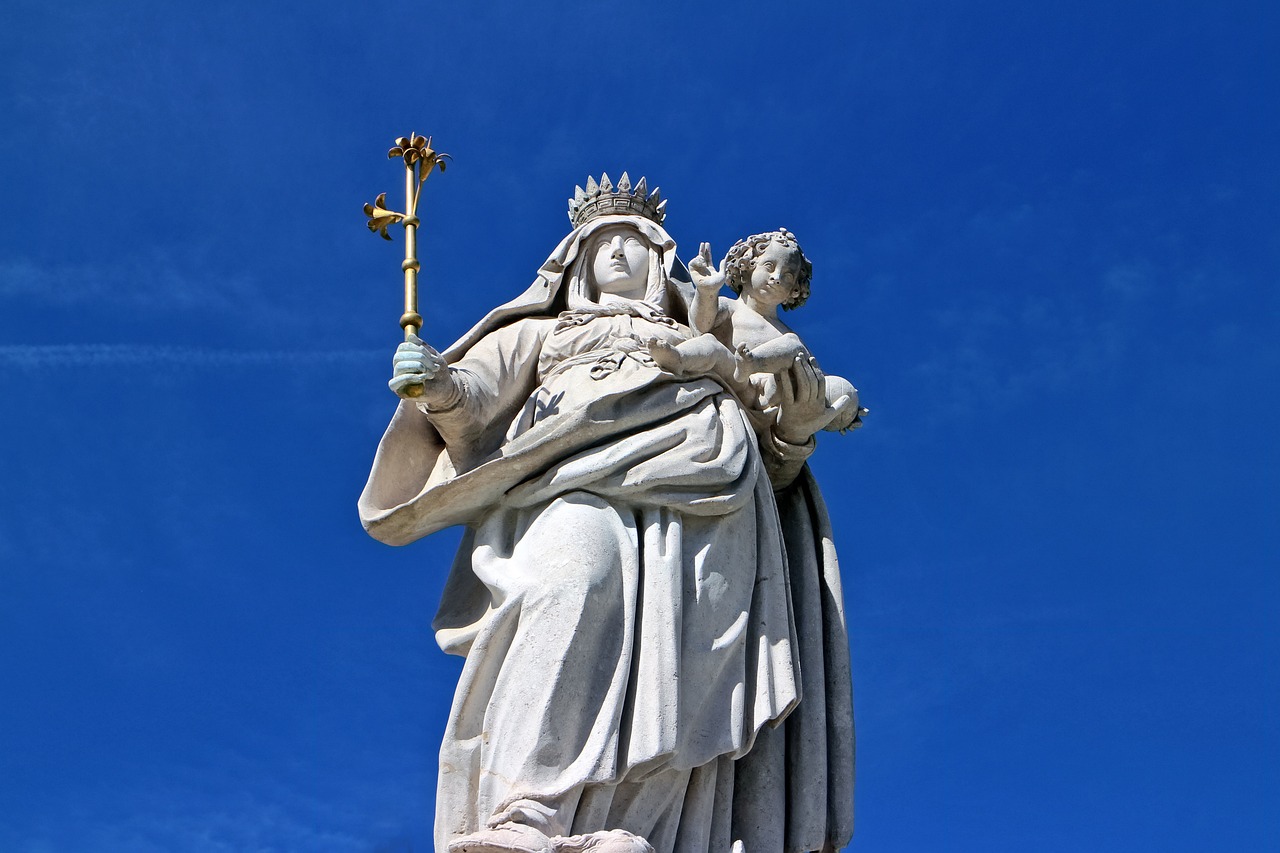
Curie's Personal Life and Legacy
Marie Curie's personal life and legacy offer a glimpse into the woman behind the groundbreaking scientific discoveries. Despite her immense contributions to the fields of physics and chemistry, Curie's personal life was marked by both triumphs and tragedies. She shared a deep partnership with her husband, Pierre Curie, with whom she conducted groundbreaking research on radioactivity. This collaboration not only advanced scientific knowledge but also strengthened their bond as partners in both life and work.
Curie's legacy extends far beyond her scientific achievements. As a mother of two daughters, Irène and Ève, she balanced her roles as a scientist and a parent, setting an example for future generations of women in academia. Her dedication to her family and her work exemplified the capacity to excel in multiple spheres, challenging societal norms and expectations.
In addition to her scientific pursuits, Curie's legacy includes her advocacy for the use of radium in medicine, particularly in the treatment of cancer. Her pioneering efforts in this field revolutionized healthcare practices, laying the foundation for modern radiation therapy and imaging techniques. The impact of her research continues to save lives and improve patient outcomes to this day.
Despite facing personal tragedies, including the loss of her husband to a tragic accident and her own battles with health issues related to her research, Curie remained steadfast in her commitment to advancing scientific knowledge. Her resilience in the face of adversity serves as a testament to her unwavering dedication to her work and her enduring legacy as a trailblazer in the field of radioactivity.
Frequently Asked Questions
- 1. Who was Marie Curie?
Marie Curie was a renowned scientist known for her pioneering research on radioactivity. She was the first woman to win a Nobel Prize and the only person to receive Nobel Prizes in two different scientific fields.
- 2. What were Marie Curie's major discoveries?
Marie Curie is credited with the discovery of the elements polonium and radium, which had a profound impact on the fields of physics, chemistry, and medicine. Her research laid the foundation for modern applications of radioactivity in healthcare.
- 3. How did Marie Curie contribute to the field of medicine?
Marie Curie's work in applying radioactivity to medicine revolutionized cancer treatment. Her research led to the development of radiation therapy techniques that are still used today to combat cancer and other diseases.
- 4. What challenges did Marie Curie face during her career?
Marie Curie faced numerous challenges, including skepticism from the scientific community and personal tragedies. Despite these obstacles, she persevered and made significant contributions to the understanding of radioactivity.
- 5. What is Marie Curie's legacy?
Marie Curie's legacy extends beyond her scientific achievements. She continues to inspire future generations of scientists, promote gender equality in STEM fields, and advance our knowledge of the natural world through her groundbreaking research.

